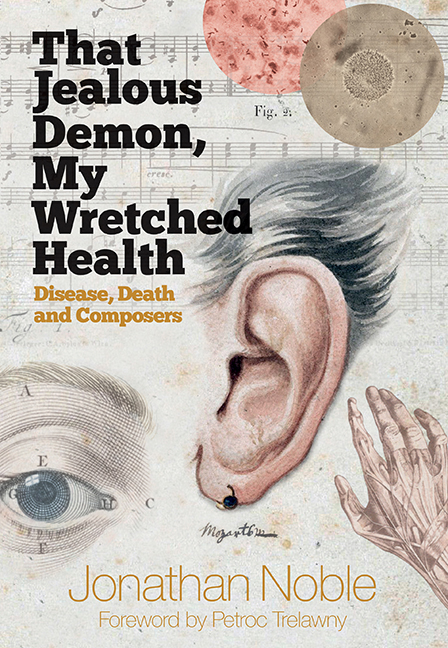Book contents
- Frontmatter
- Dedication
- Contents
- List of Illustrations
- Foreword
- Acknowledgements
- Medical Glossary
- Introduction
- 1 The Frailty of Youth
- 2 A Triumphant Old Age
- 3 Iatrogenic Afflictions
- 4 Syphilis
- 5 Alcoholism
- 6 Troubled Minds: Mental Illness and Suicide
- 7 Nerves Beyond the Edge: Other Afflictions of the Nervous System
- 8 Broken Hearts
- 9 Breathless: Respiratory Diseases
- 10 Cancer
- 11 The Ultimate Blow: Deafness
- Epilogue and Coda
- Appendix: Accidental and/or Violent Deaths
- References
- Bibliography
- Index
9 - Breathless: Respiratory Diseases
Published online by Cambridge University Press: 05 September 2018
- Frontmatter
- Dedication
- Contents
- List of Illustrations
- Foreword
- Acknowledgements
- Medical Glossary
- Introduction
- 1 The Frailty of Youth
- 2 A Triumphant Old Age
- 3 Iatrogenic Afflictions
- 4 Syphilis
- 5 Alcoholism
- 6 Troubled Minds: Mental Illness and Suicide
- 7 Nerves Beyond the Edge: Other Afflictions of the Nervous System
- 8 Broken Hearts
- 9 Breathless: Respiratory Diseases
- 10 Cancer
- 11 The Ultimate Blow: Deafness
- Epilogue and Coda
- Appendix: Accidental and/or Violent Deaths
- References
- Bibliography
- Index
Summary
As tho’ to breathe is life
Alfred, Lord Tennyson, ‘Ulysses’,1842Introduction
After heart failure, we pass to the other common causes of breathlessness and weakness, namely bronchial and lung conditions. There is a popular image of the tragic composer coughing his last in an impoverished attic. Although it is almost a cliché, there have been examples, with some raising the question of how composition occurred at all.
Respiratory disease affects either the airways to the lungs or the lungs themselves. The airways convey inspired air through the larynx (voicebox) to the trachea (windpipe) and thence to the bronchi and their smaller multiple divisions, the bronchioles. The action of the chest is to expand, thereby creating a negative pressure in the pleural cavity, which is the membranous sack surrounding a lung. That in turn causes the sponge-like lung to expand, sucking the fresh air in during inspiration. The basic lung mechanism is an exchange membrane, wherewith oxygen in the inspired air is transferred to the blood. Then, as the chest pressures reverse, the lung shrinks as we expire and exhale carbon dioxide.
There are several broad groups of lung disease:
Pulmonary embolus (PE), which we encountered in Chapter 8, involves a circulating blood clot, usually from a deep veino thrombosis (DVT), obstructing the pulmonary artery, the main blood vessel through which stale blood is pumped to the lungs, in order to be refreshed with oxygen and relieved of carbon dioxide. Sadly a PE can be fatal.
Lung cancer is usually (but not always) a malignant tumour of the lining of the bronchi. Although a very serious condition, it carries a better prognosis with modern treatment than it did twenty-fi ve years ago.
Chronic obstructive airways disease (COAD) is a group of diseases wherewith there is partial obstruction to air being exhaled. Th is causes back-pressure, one result of which is that the actual lung tissue becomes distended (emphysema); that, in turn, causes the chest to apparently enlarge (barrel chest). Th ere are several classic causes of COAD:
a Asthma – because of spasm in the walls of the bronchioles, which narrows them, making it more diffi cult to exhale.
- Type
- Chapter
- Information
- That Jealous Demon, My Wretched HealthDisease, Death and Composers, pp. 257 - 284Publisher: Boydell & BrewerPrint publication year: 2018



